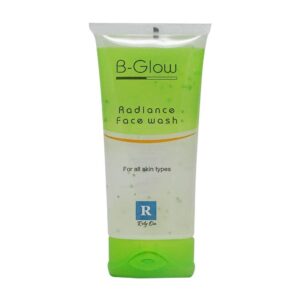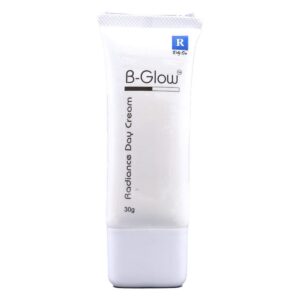VITAMIN B3 (NIACINAMIDE) + GLYCERIN + ALOE JUICE + LICORICE EXTRACT
Vitamin B3 (niacinamide): Vitamin B3, also known as niacinamide or nicotinamide, is a water-soluble vitamin that plays a crucial role in various physiological processes. It is a form of vitamin B3 that does not have the same cholesterol-lowering effects as niacin, another form of vitamin B3.
Use:
Niacinamide is commonly used as a nutritional supplement to treat certain vitamin B3 deficiencies. It is also used in some skincare products due to its anti-inflammatory and antioxidant properties. In addition, niacinamide is used in the treatment of certain medical conditions, such as acne and rosacea.
Mechanism of Action:
Niacinamide functions as a precursor to coenzymes that participate in various cellular metabolic processes. It is converted into nicotinamide adenine dinucleotide (NAD+) and nicotinamide adenine dinucleotide phosphate (NADP+), two coenzymes that are essential for cellular energy production and metabolism. Niacinamide also has anti-inflammatory effects by inhibiting certain enzymes that promote inflammation.
Dose:
The recommended dose of niacinamide varies depending on the condition being treated. For vitamin B3 deficiency, the usual dose ranges from 500 to 2000 mg per day, as directed by a healthcare professional. In skincare products, niacinamide is typically used at concentrations of 2-5%.
Side Effects:
Niacinamide is generally considered safe when used at recommended doses. However, some individuals may experience mild side effects, including gastrointestinal symptoms like nausea, vomiting, and diarrhea. These side effects are rare and typically occur at higher doses. Allergic reactions to niacinamide are extremely rare but should be reported to a healthcare professional immediately if they occur.
It’s worth noting that niacinamide is different from niacin in terms of its side effects. Niacin can cause flushing (reddening and warming of the skin) and liver toxicity at higher doses, which are not typically seen with niacinamide.
As with any medication or supplement, it’s important to consult with a healthcare professional before starting niacinamide, especially if you have any underlying medical conditions or are taking other medications.
Glycerin: Glycerin, also known as glycerol, is a colorless, odorless, and sweet-tasting liquid that is commonly used as a laxative. It works by drawing water into the intestines, which softens the stool and promotes bowel movements.
Glycerin is typically used to provide short-term relief from constipation. It may also be used to clean or lubricate the rectal area before certain medical procedures or examinations.
The exact mechanism of action of glycerin is not fully understood. However, it is believed to have osmotic properties, meaning it creates an osmotic gradient in the intestines, resulting in increased water content and hydration within the colon. This, in turn, helps to soften and lubricate the stool, facilitating its passage.
Glycerin is available as a rectal suppository and is usually inserted into the rectum. The recommended dose for adult and children over 6 years of age is one suppository (2-3 grams) per day. For infants and children under 6 years of age, the dose should be determined by a healthcare professional.
Common side effects of glycerin include rectal irritation, mild abdominal cramping, and bowel urgency. These side effects are usually temporary and subside once the treatment is stopped. More severe allergic reactions, such as rash, itching, or swelling, are rare but should be reported to a healthcare professional.
It is important to note that glycerin should not be used for extended periods without consulting a healthcare professional. Prolonged or excessive use of laxatives, including glycerin, can lead to electrolyte imbalances and dependence on laxative use. It is always best to follow the recommended dosage and duration provided by a healthcare professional.
Aloe Juice: Aloe juice, also known as aloe vera juice, is a beverage made from the gel extracted from the aloe vera plant. It is highly regarded for its potential health benefits.
Use: Aloe juice is commonly used as a natural remedy for various conditions, including digestive issues like constipation and acid reflux. It is believed to have soothing properties for the digestive system and may help regulate bowel movements. Additionally, it is sometimes used topically for skin conditions like sunburn and minor burns due to its cooling and healing effects.
Mechanism of Action: Aloe juice contains several active components, including vitamins, minerals, enzymes, and polysaccharides. Some of these components, like acemannan, may have anti-inflammatory and immune-modulating effects. Aloe juice also has a laxative effect due to the presence of anthraquinone compounds, which stimulate bowel movements.
Dose: The recommended dose of aloe juice can vary depending on the specific product and the purpose of use. It is essential to follow the instructions on the product label or consult a healthcare professional for appropriate dosage guidance.
Side Effects: While aloe juice is generally considered safe when used in moderation, it can cause certain side effects. The laxative effect of aloe juice may lead to abdominal cramps, diarrhea, and electrolyte imbalances if consumed in large quantities. Some individuals may also experience allergic reactions, such as skin rash or itching, although this is relatively rare. It is important to note that aloe juice should not be ingested by pregnant women, as it may have uterine-stimulating effects.
It is always advisable to consult with a healthcare professional before using aloe juice or any other herbal remedy, especially if you have any underlying health conditions or are taking medications, to ensure it is safe and suitable for you.
Licorice Extract: Licorice extract, also known as Glycyrrhiza glabra extract, is derived from the root of the Licorice plant. It is commonly used in herbal medicine and traditional remedies.
Licorice extract has several potential uses and is believed to have anti-inflammatory, antioxidant, and antiviral properties. It is mainly used to soothe respiratory and digestive symptoms, such as cough, bronchitis, and indigestion. Licorice extract is also used topically for skin conditions like eczema, dermatitis, and psoriasis.
The active components in licorice extract are glycyrrhizin and glycyrrhetinic acid. These compounds have been found to inhibit the enzyme 11-beta-hydroxysteroid dehydrogenase, which is involved in controlling cortisol levels in the body. By inhibiting this enzyme, licorice extract causes an increase in cortisol levels, leading to its anti-inflammatory and immunomodulatory effects.
The dose of licorice extract can vary depending on the form of the product, such as tablets, capsules, or liquid extracts. It is important to follow the instructions provided by the manufacturer or consult a healthcare professional for the appropriate dosage.
While licorice extract is generally considered safe when used in moderation and for short periods, there are some potential side effects to be aware of. Prolonged use or high doses of licorice extract can lead to mineral imbalances, particularly low potassium levels, which can cause symptoms such as weakness, muscle cramps, and abnormal heart rhythms. Licorice extract may also increase blood pressure and should be used with caution in individuals with hypertension. In addition, licorice extract may interact with certain medications, such as blood thinners, diuretics, and corticosteroids, so it is important to discuss its use with a healthcare professional if taking any other medications.
It is worth noting that licorice extract should be avoided by pregnant women, nursing mothers, and individuals with kidney disease, liver disease, or a history of hormone-sensitive cancers. It is always advisable to consult with a healthcare professional before starting any new herbal or dietary supplement.


